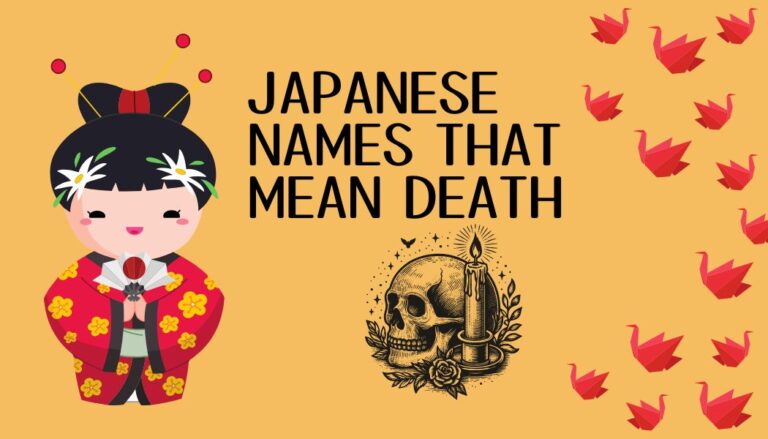Top 200 Greek Names and Their Meanings
Greek names have an enduring charm that has spanned centuries, captivating people from all cultures and backgrounds. Rooted deeply in the rich history of Ancient Greece, these names evoke images of gods, philosophers, warriors, and timeless stories from mythology. Whether it’s the wise Athena, the strong Alexander, or the serene Sophia, Greek names carry an air of sophistication and profound meaning. Their deep connection to mythology, philosophy, and history has ensured that these names remain relevant today, transcending geographical and temporal boundaries.
As symbols of virtues like strength, wisdom, love, and beauty, Greek names hold a special place in modern culture, appearing not only in Greece but also in many parts of the world. Their meanings offer insight into ancient beliefs and ideals, making them not just labels, but representations of the values they were associated with. From historical figures to modern-day celebrities, Greek names continue to echo the grandeur of the past.
Why Greek Names Are So Popular
Historical and Cultural Significance
Greek names have a profound connection to one of the oldest and most influential civilizations in human history—Ancient Greece. The legacy of the ancient Greeks continues to shape modern Western culture in countless ways, including in our names. Many Greek names are derived from Greek mythology, where gods, goddesses, heroes, and legendary figures shaped not only the stories of their time but the values and ideals that were revered. Names such as Apollo, Athena, and Perseus carry with them stories of wisdom, beauty, strength, and divine power.
In addition to mythology, Greek names are deeply connected to the foundations of philosophy and science, as ancient Greek thinkers like Aristotle, Socrates, and Plato laid the groundwork for many of the concepts we study today. As a result, Greek names also symbolize intellectual depth, making them not just identifiers, but reminders of ancient wisdom and intellectual achievements.
Moreover, the ancient Greek civilization made lasting contributions to democracy, the arts, and the development of early philosophy. The cultural impact of names like Alexander, Leonidas, or Euripides evokes images of leaders, warriors, and artists who made significant contributions to human history. These names reflect the pride and enduring respect people have for the historical figures who helped shape the world as we know it.
Modern Appeal
Despite being rooted in ancient history, Greek names continue to hold great appeal in the modern world. One reason for this is their timeless nature—Greek names often transcend trends, retaining their beauty and significance across generations. Names like Sophia (meaning wisdom), Eleni (meaning light), and Nikos (meaning victory of the people) are still widely used, not only in Greece but also internationally. They maintain a classic elegance that gives them an enduring appeal.
Another key reason for the modern popularity of Greek names is their depth of meaning. Unlike names that are purely arbitrary, Greek names often carry profound meanings tied to human virtues, deities, or historical events. For example, the name Dimitri (meaning “follower of Demeter,” the goddess of agriculture) conveys a connection to nature and the earth, while Theodore (meaning “gift of God”) carries spiritual weight. This level of meaning offers parents a sense of cultural connection and emotional resonance when choosing a name for their child.
Moreover, Greek names have international recognition. As the ancient Greek culture was a precursor to the development of Western civilization, many Greek names are easily recognizable across different countries and languages. Whether you’re in Europe, the United States, or beyond, names like George, Alexander, and Maria have universal appeal, making them ideal choices for parents who want a name that will be familiar and respected worldwide.
In an increasingly globalized world, the international appeal of Greek names makes them both accessible and distinctive, further cementing their relevance in modern society.
Naming Traditions:
In contemporary Greece, naming traditions are still deeply rooted in cultural practices that have been passed down for generations. One of the most important customs is the tradition of naming children after relatives, particularly grandparents. It is common for a boy to be named after his paternal grandfather and a girl after her maternal grandmother. This tradition helps maintain family connections and honors ancestors, ensuring that the heritage of Greek names is preserved.
In Greece, many children are given names that reflect religious devotion, especially those derived from Christian saints. Names such as Ioannis (John), Panagiotis (a name dedicated to the Virgin Mary), and Maria (a very common name for girls) are rooted in the Greek Orthodox Christian tradition. These names carry not just historical weight but also spiritual significance for many Greek families.
Additionally, Greek names can carry with them a sense of pride and national identity. In times of national celebration, such as the Greek Independence Day, the enduring legacy of Greek heroes and figures is honored, often through the use of names that have been historically significant. Names like Alexandros (Alexander) and Leonidas resonate deeply, representing the valor and strength of ancient Greece.
As Greek communities expand globally, many families abroad continue to follow these naming traditions. In places like the United States, Canada, and Australia, Greek names are often passed down through generations, maintaining cultural identity and continuity while adapting to modern life.
Best Greek Names and Their Meanings
Greek names are rich in history, culture, and meaning, often derived from ancient mythology, philosophy, and heroic figures. These names continue to resonate with timeless significance, making them popular choices for modern families.
Greek Boys’ Names and Their Meanings
In Greek culture, names for boys are often much more than identifiers—they carry deep significance and embody core virtues. Many Greek names for boys symbolize qualities such as strength, leadership, and wisdom.
These virtues were highly revered in ancient Greece, where mythological heroes, philosophers, and warriors embodied the ideals that these names represent. For instance, names like Alexander and Leonidas are tied to legendary figures who showcased courage and leadership, while names such as Socrates and Aristotle reflect intellectual achievement and philosophical depth. As a result, these names are not only cherished for their historical importance but also for the positive traits they continue to represent in modern times.
| # | Name | Pronunciation | Meaning | Origin | Notable Figures |
|---|---|---|---|---|---|
| 1 | Alexander | ah-lek-ZAN-der | Defender of the people | Greek, Mythology | Alexander the Great |
| 2 | Nikos | NEE-kohs | Victory of the people | Greek | Common in Greece, also used internationally |
| 3 | Dimitri | dee-MEE-tree | Follower of Demeter | Greek, Mythology | Dimitri, a popular name in Greek-speaking countries |
| 4 | Leonidas | le-ON-ee-das | Son of a lion, strong | Greek, History | King Leonidas I of Sparta |
| 5 | Theo | THEE-oh | God-given | Greek, Religious | Theo, popular short form of Theodore |
| 6 | Socrates | SOH-kray-teez | Wise, an ancient philosopher | Greek, Philosophy | Socrates, the Athenian philosopher |
| 7 | Constantine | KON-stan-teen | Steadfast, constant | Greek, History | Constantine the Great |
| 8 | Elias | ee-LYAHSS | Jehovah is my God | Greek, Biblical | Elias, derived from the prophet Elijah |
| 9 | Alekos | ah-LEH-kos | Defender of the people | Greek, Shortened form of Alexander | Used in Greece and Cyprus |
| 10 | Nikolaos | nee-ko-LA-os | Victory of the people | Greek, Mythology | Saint Nikolaos, patron saint of Greece |
| 11 | Panagiotis | pa-na-GEE-o-tees | All-holy | Greek, Religious | Panagiotis, popular in Greek Orthodox tradition |
| 12 | Achilles | a-KILL-ees | Pain, suffering (Greek hero) | Greek, Mythology | Achilles, the hero of the Trojan War |
| 13 | Aristotle | a-ree-STOT-ul | Best purpose | Greek, Philosophy | Aristotle, ancient Greek philosopher |
| 14 | Iason | ee-AH-son | Healer, physician | Greek, Mythology | Jason, leader of the Argonauts |
| 15 | Andreas | an-DREH-as | Man, warrior | Greek, Christian | Andreas, a common name in Greece |
| 16 | Theodore | thee-oh-DORE | Gift of God | Greek, Religious | Theodore Roosevelt, U.S. president |
| 17 | Kyriakos | kee-ree-AH-kos | Of the Lord | Greek, Religious | Saint Kyriakos, popular in the Orthodox Church |
| 18 | Vasilis | va-SEE-lees | King | Greek, Royal | Vasilis, meaning royal or noble |
| 19 | Damian | DAY-mee-an | To tame, subdue | Greek, Saint | Saint Damian, Christian martyr |
| 20 | Spyros | SPEER-os | Spirit | Greek, Mythology | Spyros, meaning spirit or breath of life |
| 21 | Kostas | KOH-stas | Constant, firm | Greek | Popular in Greece, often short for Konstantinos |
| 22 | Georgios | YOR-gee-os | Farmer, earthworker | Greek, Saint | Saint George, patron saint of Greece |
| 23 | Mihalis | mee-HAH-lees | Who is like God | Greek, Biblical | Mihalis, a variation of Michael |
| 24 | Themis | THEE-miss | Law, order | Greek, Mythology | Themis, goddess of justice in Greek mythology |
| 25 | Stavros | STAH-vros | Cross, foundation | Greek, Religious | Saint Stavros, associated with the Orthodox Church |
| 26 | Panos | PAH-nohs | All holy | Greek, Religious | Shortened form of Panagiotis |
| 27 | Niketas | nee-KAY-tas | Victorious | Greek | Niketas, common among Byzantine emperors |
| 28 | Lazaros | LAH-zah-ros | God is my help | Greek, Biblical | Lazarus, a Biblical figure raised from the dead |
| 29 | Orestis | oh-RES-tees | Mountain dweller | Greek, Mythology | Orestes, a figure in Greek tragedy |
| 30 | Perikles | per-ee-KLEESE | Surrounded by glory | Greek, History | Pericles, an influential Athenian statesman |
| 31 | Thanos | THAH-nohs | Immortal | Greek, Mythology | Thanos, Marvel Comics character |
| 32 | Hercules | HER-kyoo-leez | Glory of Hera | Greek, Mythology | Hercules, a hero of Greek mythology |
| 33 | Tasos | TAH-sohs | Golden | Greek | Tasos, a name often used in Greek islands |
| 34 | Zeus | ZOOS | God of thunder | Greek, Mythology | Zeus, the king of the gods in Greek mythology |
| 35 | Hermes | HER-meez | Messenger of the gods | Greek, Mythology | Hermes, the Greek god of travel and communication |
| 36 | Ari | AH-ree | Lion-like, courageous | Greek, Mythology | Ari, often a short form for Aristides or Aristotle |
| 37 | Simos | SEE-mos | He who is heard, famous | Greek | Simos, often associated with notable Greeks |
| 38 | Polykarpos | pol-ee-KAHR-pos | Much fruit, abundant | Greek, Religious | Saint Polycarp, early Christian martyr |
| 39 | Nikolaos | nee-KOH-lah-os | Victory of the people | Greek, Mythology | Saint Nikolaos, known for generosity |
| 40 | Petros | PEH-tros | Rock, stone | Greek, Religious | Saint Peter, apostle of Jesus |
| 41 | Christos | KREE-stos | Anointed, Christ-like | Greek, Religious | Christos, meaning “the anointed one” |
| 42 | Alkis | AL-kees | Bold, strong | Greek | Alkis, a name associated with strength |
| 43 | Angelos | AHN-yel-os | Messenger, angel | Greek, Religious | Angelos, name of several saints |
| 44 | Emmanouil | eh-mah-NOO-eel | God is with us | Greek, Religious | Emmanouil, often used in Greek Orthodox families |
| 45 | Kleon | KLEE-on | Glory, fame | Greek, History | Kleon, a figure in Greek history |
| 46 | Efstathios | ef-STA-thee-os | Steadfast, constant | Greek, Religious | Saint Efstathios, a figure of Greek Orthodox history |
| 47 | Dionysios | dee-oh-NEE-see-os | God of wine and revelry | Greek, Mythology | Dionysius, god of wine and fertility |
| 48 | Stavros | STAH-vros | Cross, foundation | Greek, Religious | Saint Stavros, a prominent figure in the Orthodox Church |
| 49 | Makarios | ma-KAHR-ee-os | Blessed, happy | Greek, Religious | Makarios, a name popular in Christian circles |
| 50 | Kyros | KEE-ros | Sun, Lord, master | Greek, History | Kyros, an ancient Persian king |
Greek Girls’ Names and Their Meanings
In Greek culture, names for girls are often imbued with rich meanings that reflect values such as wisdom, beauty, grace, and virtue. Many Greek names for girls are derived from mythological figures, goddesses, or virtues that were highly revered in ancient Greece.
Names like Athena, Sophia, and Eleni are not only beautiful but carry with them the legacy of wisdom, strength, and the divine. These names represent the ideals that were cherished in Greek society, and they continue to resonate in modern times. The power of Greek girl names lies in their timeless beauty and the profound symbolism they carry, making them an enduring choice for parents worldwide.
| # | Name | Pronunciation | Meaning | Origin | Notable Figures |
|---|---|---|---|---|---|
| 1 | Sophia | so-FEE-ah | Wisdom | Greek, Philosophy | Sophia Loren, actress |
| 2 | Eleni | eh-LEH-nee | Light, torch | Greek, Mythology | Saint Eleni, mother of Emperor Constantine |
| 3 | Athena | ah-THEE-nah | Goddess of wisdom and warfare | Greek, Mythology | Athena, goddess in Greek mythology |
| 4 | Maria | mah-REE-ah | Sea of bitterness | Greek, Biblical | Maria Callas, famous opera singer |
| 5 | Katerina | kah-teh-REE-nah | Pure | Greek, Christian | Katerina, a common name across Greek-speaking nations |
| 6 | Anastasia | ah-nah-STAH-see-ah | Resurrection, rebirth | Greek, Religious | Anastasia Romanov, Russian princess |
| 7 | Zoe | ZOH-ee | Life | Greek, Biblical | Zoe, a popular name in the Eastern Orthodox Church |
| 8 | Chara | KHAH-rah | Joy, happiness | Greek, Mythology | Chara, personification of joy in Greek mythology |
| 9 | Eirini | ee-REE-nee | Peace | Greek, Religious | Saint Eirini, a Christian martyr |
| 10 | Daphne | DAF-nee | Laurel tree, victory | Greek, Mythology | Daphne, a nymph turned into a laurel tree in mythology |
| 11 | Niki | NEE-kee | Victory | Greek, Mythology | Niki Lauda, famous Formula 1 driver |
| 12 | Irene | ee-REE-nee | Peace | Greek, Religious | Saint Irene, Christian martyr |
| 13 | Calliope | ka-LYE-oh-pee | Beautiful voice | Greek, Mythology | Calliope, muse of epic poetry in Greek mythology |
| 14 | Selene | seh-LEE-nee | Moon goddess | Greek, Mythology | Selene, moon goddess in Greek mythology |
| 15 | Cleo | KLEE-oh | Glory, pride | Greek, Mythology | Cleopatra, Queen of Egypt |
| 16 | Rhea | REE-ah | Flowing stream, ease | Greek, Mythology | Rhea, mother of gods in Greek mythology |
| 17 | Ariadne | ah-ree-AHD-nee | Most holy | Greek, Mythology | Ariadne, daughter of King Minos |
| 18 | Persephone | per-SEF-oh-nee | Bringer of death, goddess of spring | Greek, Mythology | Persephone, queen of the underworld |
| 19 | Antheia | an-THEE-ah | Flower, blossom | Greek, Mythology | Antheia, Greek goddess of flowers and gardens |
| 20 | Eleftheria | eh-LEF-the-ree-ah | Freedom | Greek, Religious | Eleftheria, a name symbolizing liberation and freedom |
| 21 | Amalia | ah-MAH-lee-ah | Hardworking, industrious | Greek, Modern | Amalia, meaning industrious or hard-working |
| 22 | Theodora | thee-oh-DORE-ah | Gift of God | Greek, Religious | Theodora, Byzantine empress |
| 23 | Despina | des-PEE-nah | Lady, mistress | Greek, Mythology | Despina, a common name in Greek Orthodox tradition |
| 24 | Xenia | KSEE-nee-ah | Hospitality, guest | Greek, Mythology | Xenia, meaning “guest-friendship” in ancient Greece |
| 25 | Phoebe | FEE-bee | Bright, shining | Greek, Mythology | Phoebe, a titan goddess associated with the moon |
| 26 | Vasiliki | vah-see-LEE-kee | Royal, queenly | Greek, Royal | Vasiliki, meaning royal or noble |
| 27 | Athanasia | ath-ah-NAS-ee-ah | Immortality | Greek, Religious | Athanasia, often used for saints |
| 28 | Melina | meh-LEE-nah | Honey, sweet | Greek, Modern | Melina Mercouri, Greek actress and singer |
| 29 | Kalliope | KAL-ee-oh-pee | Beautiful voice | Greek, Mythology | Kalliope, muse of epic poetry |
| 30 | Andriana | an-DREE-ah-nah | Manly, brave | Greek, Modern | Andriana, a name symbolizing bravery |
| 31 | Lydia | LID-ee-ah | From Lydia, a region in ancient Greece | Greek, Geography | Lydia, a historical figure from Asia Minor |
| 32 | Marina | mah-REE-nah | Of the sea | Greek, Modern | Marina, meaning “from the sea” |
| 33 | Penelope | peh-NELL-oh-pee | Weaver | Greek, Mythology | Penelope, wife of Odysseus in Greek mythology |
| 34 | Stella | STEL-ah | Star | Greek, Modern | Stella, meaning star or celestial body |
| 35 | Kyria | KEE-ree-ah | Lady, mistress | Greek, Modern | Kyria, an elegant name with aristocratic roots |
| 36 | Eftihia | ef-TEE-ya | Happiness | Greek, Modern | Eftihia, signifying joy and happiness |
| 37 | Irini | ee-REE-nee | Peace | Greek, Religious | Irini, derived from the Greek word for peace |
| 38 | Clio | CLEE-oh | Glory, fame | Greek, Mythology | Clio, muse of history and the written word |
| 39 | Sofia | soh-FEE-ah | Wisdom | Greek, Modern | Sofia, an international and popular name |
| 40 | Georgia | JOR-jah | Farmer, earthworker | Greek, Saint | Saint Georgia, patron saint of farmers |
| 41 | Dora | DOH-rah | Gift | Greek, Religious | Dora, often used as a short form for Theodora |
| 42 | Roxane | rok-SAHN | Dawn, bright, radiant | Greek, Mythology | Roxane, wife of Alexander the Great |
| 43 | Mariana | mah-ree-AH-nah | Of the sea, bitter | Greek, Biblical | Mariana, a variation of Mary |
| 44 | Irene | ee-REE-nee | Peace | Greek, Religious | Irene, a name of peace in Christian tradition |
| 45 | Vasilia | vah-SEE-lee-ah | Royal, queenly | Greek, Royal | Vasilia, meaning royal or noble |
| 46 | Evdokia | ef-DOH-kee-ah | Good will | Greek, Religious | Evdokia, associated with kindness and grace |
| 47 | Sofia | soh-FEE-ah | Wisdom | Greek, Philosophy | Sofia, name of many saints and notable individuals |
| 48 | Lydia | LID-ee-ah | From Lydia, region of Asia Minor | Greek, Geography | Lydia, a woman of strength in the Bible |
| 49 | Lia | LEE-ah | My God is my oath | Greek, Religious | Lia, meaning consecration or dedication to God |
| 50 | Ioanna | ee-OH-ah-nah | God is gracious | Greek, Religious | Ioanna, a variation of Joanna |
Greek Mythology Names
Many Greek names have their origins in Greek mythology, which is rich with stories of gods, goddesses, heroes, and mythical creatures. These names are not just identifiers, but carry deep cultural and symbolic meanings that reflect the values and beliefs of ancient Greek society.
The gods and goddesses of Greek mythology represented different aspects of life, from love and beauty to war and wisdom, and their names continue to resonate across generations. Mythological names often convey qualities like strength, wisdom, beauty, and power, making them timeless choices for many parents today.
Whether through the heroic deeds of characters like Hercules or the divine wisdom of Athena, these names are an embodiment of the ideals that shaped Greek culture and continue to influence modern societies.
| # | Name | Pronunciation | Meaning | Mythological Connection |
|---|---|---|---|---|
| 1 | Zeus | ZOOS | God of thunder, King of the Gods | King of the Olympian gods |
| 2 | Athena | ah-THEE-nah | Goddess of wisdom and warfare | Goddess of wisdom, courage, and strategy |
| 3 | Apollo | ah-POL-oh | God of the sun, music, and prophecy | God of the sun, music, and healing |
| 4 | Aphrodite | af-roh-DYE-tee | Goddess of love and beauty | Goddess of love, beauty, and fertility |
| 5 | Hercules | HER-kyoo-leez | Glory of Hera | Hero famous for his strength and 12 labors |
| 6 | Artemis | AR-teh-mis | Goddess of the moon and hunting | Goddess of the hunt and wild animals |
| 7 | Poseidon | poh-SYE-don | God of the sea | God of the seas, earthquakes, and horses |
| 8 | Demeter | dee-MEE-ter | Goddess of agriculture and fertility | Goddess of the harvest and agriculture |
| 9 | Hermes | HER-meez | Messenger of the gods | God of travelers, commerce, and thieves |
| 10 | Persephone | per-SEF-oh-nee | Queen of the Underworld | Goddess of spring and wife of Hades |
| 11 | Hera | HEH-rah | Goddess of marriage and family | Queen of the gods, wife of Zeus |
| 12 | Dionysus | die-oh-NYE-sus | God of wine, revelry, and fertility | God of wine, parties, and madness |
| 13 | Heracles | HER-ah-kleez | Glory of Hera | Hero renowned for his strength and feats |
| 14 | Eros | EH-ros | God of love and desire | God of love and sexual attraction |
| 15 | Athena | ah-THEE-nah | Goddess of wisdom and war | Goddess of wisdom and strategy |
| 16 | Gaia | GAI-ah | Earth, mother goddess | Personification of the Earth itself |
| 17 | Ares | AIR-eez | God of war | God of war and battle |
| 18 | Thanatos | THAN-ah-tos | God of death | Personification of death |
| 19 | Nike | NEE-kee | Goddess of victory | Goddess of victory and triumph |
| 20 | Hephaestus | heh-FAH-stus | God of fire and blacksmithing | God of fire, craftsmanship, and volcanoes |
| 21 | Selene | seh-LEE-nee | Goddess of the moon | Goddess of the moon and lunar light |
| 22 | Ariadne | ah-ree-AHD-nee | Most holy | Daughter of King Minos, associated with mazes and labyrinths |
| 23 | Orpheus | OR-fee-us | Legendary musician, poet | Famous for his music and tragic love story |
| 24 | Medea | meh-DEE-ah | Cunning, knowledgeable | Sorceress and wife of Jason |
| 25 | Pandora | pan-DOR-ah | All-gifted | The first woman, opened the jar of evils |
| 26 | Nike | NEE-kee | Goddess of victory | Goddess of victory |
| 27 | Eros | EH-ros | God of love and desire | God of romantic love |
| 28 | Chiron | KAI-ron | Wise centaur | A wise centaur, mentor to many heroes |
| 29 | Calypso | ka-LIP-soh | She who conceals | Nymph who kept Odysseus on her island |
| 30 | Echo | ECK-oh | Nymph who repeats | A nymph who could only echo others’ words |
| 31 | Icarus | ICK-ah-ruhs | Son of Daedalus, flew too close to the sun | Famous for his ill-fated flight with wings |
| 32 | Althea | al-THEE-ah | Healing, nurturing | Mother of Meleager, connected to healing powers |
| 33 | Hecate | HEK-ah-tee | Goddess of witchcraft and magic | Goddess of magic, witchcraft, and the moon |
| 34 | Jason | JAY-suhn | Healer, one who cures | Leader of the Argonauts |
| 35 | Leda | LEE-dah | Queen of Sparta | Mother of Helen of Troy |
| 36 | Perseus | PER-see-us | Avenger | Hero who slayed Medusa |
| 37 | Artemis | AR-teh-mis | Goddess of the hunt | Goddess of hunting and the wilderness |
| 38 | Odysseus | oh-DISS-yoos | Long journey | Hero of the “Odyssey” |
| 39 | Tantalus | TAN-ta-lus | King punished by the gods | King in Greek mythology, condemned to eternal hunger |
| 40 | Circe | SIR-see | Sorceress | Enchantress who transformed Odysseus’ men into pigs |
| 41 | Phaethon | FAY-thon | Son of the sun | Son of Helios, tried to drive the sun chariot |
| 42 | Cerberus | SER-bur-us | Three-headed dog | Guardian of the Underworld |
| 43 | Cassandra | kah-SAN-drah | Prophetess, one who shines | Trojan princess with the gift of prophecy |
| 44 | Hestia | HES-tee-ah | Goddess of the hearth and home | Goddess of the hearth and family |
| 45 | Aeneas | ah-NEE-ahs | Leader of the Trojans | Hero of the Trojan War |
| 46 | Theseus | THEE-see-us | King of Athens | Founder-hero of Athens, defeated the Minotaur |
| 47 | Niobe | NEE-oh-bee | Mother of many children | Tragic figure who lost her children to the gods |
| 48 | Morpheus | MOR-fee-us | God of dreams | God of dreams and sleep |
| 49 | Ares | AIR-eez | God of war | God of war and violence |
| 50 | Pandora | pan-DOR-ah | All-gifted | First woman, opened the box of evils |
Rare and Uncommon Greek Names
While popular Greek names like Sophia, Alexander, and Athena are widely recognized and used, there is a treasure trove of rare and uncommon Greek names that offer unique beauty and deep meaning.
These names are often drawn from ancient mythology, historical figures, and literary traditions but are not as commonly seen today, making them an ideal choice for parents looking for something distinctive. Many of these names carry rich symbolism, often reflecting virtues such as courage, intelligence, strength, and beauty.
Choosing a rare or uncommon Greek name allows individuals to embrace a name with both historical significance and individuality, creating a sense of uniqueness and cultural connection.
| # | Name | Pronunciation | Meaning | Origin/Connection |
|---|---|---|---|---|
| 1 | Aurelia | aw-REH-lee-ah | Golden, golden-haired | Latin and Greek origins |
| 2 | Evdokia | ef-DOH-kee-ah | Good will, kindness | Greek, Religious |
| 3 | Leandros | lee-AN-dros | Lion of a man | Greek, Mythology |
| 4 | Eirenaios | ee-reh-NAY-ohs | Peaceful | Greek, Religious |
| 5 | Sophronia | soh-FROH-nee-ah | Prudence, soundness of mind | Greek, Philosophy |
| 6 | Ianthe | ee-AN-thee | Violet flower | Greek, Mythology |
| 7 | Theophilus | thee-OH-fi-lus | Lover of God | Greek, Religious |
| 8 | Hesperia | hes-PEHR-ee-ah | Evening star, west | Greek, Mythology |
| 9 | Kyros | KEE-ros | Sun, Lord, master | Greek, Historical |
| 10 | Zethos | ZEE-thos | To search, to inquire | Greek, Mythology |
| 11 | Andronikos | an-droh-NEE-kos | Manly victory | Greek, Ancient History |
| 12 | Dione | dee-OH-nee | Goddess, divine | Greek, Mythology |
| 13 | Thales | THAH-les | A sage, thinker | Greek, Philosophy, History |
| 14 | Phrixus | FRIX-us | Golden-haired | Greek, Mythology |
| 15 | Alecto | ah-LEK-toh | Unceasing, one of the Furies | Greek, Mythology |
| 16 | Melissandra | meh-LEE-sahn-drah | Sweet honey, honey bee | Greek, Mythology |
| 17 | Cassiopeia | kas-ee-oh-PEE-ah | Queen of Ethiopia, very beautiful | Greek, Mythology |
| 18 | Zephyra | ZEF-yer-ah | West wind | Greek, Mythology |
| 19 | Timaeus | ti-MAY-us | Honored, esteemed | Greek, Ancient Philosophy |
| 20 | Evangelos | ev-AN-jeh-lohs | Good messenger, bringer of good news | Greek, Religious |
| 21 | Nicomedes | nee-KOH-mee-dees | Victorious, one who conquers | Greek, Ancient History |
| 22 | Aspasia | as-PAH-see-ah | A name meaning “welcome” | Greek, Classical History |
| 23 | Charon | KAY-ron | Boatman of the underworld | Greek, Mythology |
| 24 | Antheia | an-THEE-ah | Flower, blossom | Greek, Mythology |
| 25 | Perseus | PER-see-us | Avenger | Greek, Mythology |
| 26 | Phaedra | FAY-drah | Bright, shining | Greek, Mythology |
| 27 | Athenais | ath-eh-NAY-iss | Of Athena, wise | Greek, Mythology |
| 28 | Philomela | FILL-oh-MEE-lah | Lover of song | Greek, Mythology |
| 29 | Cyrus | SYE-rus | Sun, lord | Greek, Persian Roots |
| 30 | Ismene | is-MEE-nee | Knowledgeable, one who knows | Greek, Mythology |
| 31 | Anaximander | an-aks-ih-MAN-der | Ruler of man, leader of mankind | Greek, Philosophy |
| 32 | Cassandra | kah-SAN-drah | Prophetess, one who shines | Greek, Mythology |
| 33 | Callista | kah-LISS-tah | Most beautiful | Greek, Mythology |
| 34 | Thessalonike | thess-ah-lo-NEE-kee | Victory of Thessalonica | Greek, Historical |
| 35 | Tympanus | tim-PAH-nus | The god of musical instruments | Greek, Mythology |
| 36 | Eutropia | yoo-TROH-pee-ah | Good, fortunate | Greek, Classical History |
| 37 | Philemon | fi-LEE-mon | Affectionate, loving | Greek, Mythology |
| 38 | Nereus | NEE-ree-us | Old man of the sea | Greek, Mythology |
| 39 | Hesperides | hes-PEHR-i-deez | The nymphs of the evening star | Greek, Mythology |
| 40 | Clio | CLEE-oh | Glory, fame | Greek, Mythology |
| 41 | Polyxena | pol-ik-SEE-nah | Very hospitable, offering many gifts | Greek, Mythology |
| 42 | Aeneas | ah-NEE-ahs | Leader of the Trojans | Greek, Mythology |
| 43 | Andromeda | an-droh-MEE-dah | Ruler of men, a princess | Greek, Mythology |
| 44 | Aristaeus | a-riss-TEE-us | Best, most excellent | Greek, Mythology |
| 45 | Diomedes | die-oh-MEE-dees | God-like, divine, daring | Greek, Mythology |
| 46 | Myrrha | MEER-ah | Myrrh, a resin with aromatic qualities | Greek, Mythology |
| 47 | Cyrene | SEE-ree-nee | Strong, powerful | Greek, Mythology |
| 48 | Chione | KAI-oh-nee | Snow, the goddess of snow | Greek, Mythology |
| 49 | Zephyrus | ZEF-yer-us | God of the West wind | Greek, Mythology |
| 50 | Asteria | as-TEH-ree-ah | Starry, goddess of the stars | Greek, Mythology |
How to Choose the Right Greek Name
Considerations
When choosing a Greek name, there are several important factors to consider to ensure the name resonates with you and carries the significance you desire. Here are some tips to help you select the perfect Greek name:
- Meaning and Significance:
- Greek names often carry deep meanings that can reflect your personal beliefs, values, or aspirations. For example, Sophia (meaning “wisdom”) might be an ideal choice if you want a name that reflects intelligence and insight, while Victor (from Niketas, meaning “victorious”) could be a great choice for someone hoping to symbolize strength and success.
- Research the meanings behind the names you’re considering. Names from Greek mythology, history, or philosophy often have rich, cultural connotations that can make them even more special.
- Think about what the name represents. Do you want a name that speaks to wisdom, beauty, courage, or love? The meaning behind the name can have a lasting impact, not only on your child’s identity but also on the values you want to emphasize.
- Sound and Pronunciation:
- The sound and pronunciation of a Greek name are essential for its usability in daily life. Some Greek names can be challenging to pronounce for people who are not familiar with the language. Consider how the name sounds in the language you speak and if it’s easy for others to pronounce.
- Think about the flow of the name with the last name. Some Greek names, like Eleni or Dimitri, flow smoothly and sound harmonious when said aloud. However, longer names with multiple syllables (like Athanasius) might be harder for young children to pronounce and might require special consideration.
- Family Traditions or Historical Connections:
- In many Greek families, names are passed down through generations, especially the names of grandparents or important family figures. If you have Greek heritage, consider using a name that honors your family traditions or connects with your cultural roots.
- Some families prefer to name children after famous historical or religious figures, like George, Ioannis, or Maria, which hold spiritual or familial significance.
- If you want to preserve family history, you might consider using a name that’s been part of your family for generations. If not, you can create a new tradition by choosing a name that fits the legacy you want to create.
Popular Trends
When it comes to selecting a Greek name in today’s world, there are several modern trends to keep in mind. While traditional Greek names are always in demand, contemporary influences also shape naming preferences.
- Celebrity Influence:
- Many parents today look to celebrity figures for inspiration when choosing names. Celebrities with Greek names, such as Sofia Vergara, Nicolette Sheridan, and Gisele Bündchen, have made Greek names more fashionable worldwide. For instance, Sophia and Elias have seen a resurgence in popularity thanks to famous figures.
- Popular culture has made many Greek mythological names (like Apollo and Athena) increasingly appealing, not just because of their mythological roots but also because they carry a sense of glamour and timelessness.
- Cultural Shifts:
- Globalization has made Greek names more universally recognized and appealing. As Greek culture continues to influence modern society, names such as Leo, Chloe, and Elena have become popular choices around the world, especially in English-speaking countries.
- People are increasingly choosing uncommon Greek names as a way to give their children something distinctive. Parents today may want a name that stands out but still connects with ancient culture and history. This is why names like Cassiopeia, Daphne, and Nereus are becoming more appealing for those looking for something unique.
- Simplicity vs. Tradition:
- Modern parents might also consider whether the name will stand the test of time. While names like Athena and Alexander are classic and deeply embedded in history, newer, shorter Greek names like Theo, Lia, or Tasos are trending in response to the preference for simplicity and ease of use.
- Many modern Greek names still retain their traditional charm but are given a twist for easier pronunciation and adaptability across different languages. For example, Katerina is often shortened to Katya or Kathy, making it more approachable.
Frequently Asked Questions
What are the most popular Greek names?
Some of the most popular Greek names include Sophia, Alexander, Eleni, Nikolas, Maria, and Dimitri. These names have endured through generations and are widely recognized for their historical, religious, and cultural significance.
Are Greek names used outside of Greece?
Yes, Greek names are widely used outside of Greece, particularly in countries with significant Greek communities, such as the United States, Canada, and Australia. Names like George, Christos, and Athena are recognized and appreciated globally due to their deep meanings and historical roots.
What do Greek names symbolize?
Greek names often symbolize virtues such as wisdom, strength, beauty, love, victory, and courage. Many names are derived from Greek mythology, where gods, goddesses, and heroes embodied these qualities. For example, Sophia means wisdom, and Nike means victory.
How do you pronounce Greek names?
Greek names can sometimes be challenging to pronounce for non-Greek speakers. Many names have distinct syllable emphasis and vowel sounds. It’s always a good idea to check the correct pronunciation of a name before using it, especially if it’s less familiar. Online resources or native speakers can help ensure you’re pronouncing a name correctly.
Can I give my child a Greek name if I’m not Greek?
Absolutely! While Greek names have deep cultural and historical significance in Greece, they are appreciated worldwide. Many parents outside Greece choose Greek names for their children because of their timeless meanings, elegance, and connection to history and mythology.
What are some uncommon or rare Greek names?
Some uncommon Greek names include Leandros (lion of a man), Evdokia (good will), Thales (a sage), Dione (goddess), and Ianthe (violet flower). These names offer a unique connection to Greek culture without being overly popular.
Why are Greek names so meaningful?
Greek names often have profound meanings tied to mythology, philosophy, and religion. For instance, names like Athena and Apollo are not just beautiful—they are linked to powerful deities and carry a sense of wisdom, strength, and grandeur. This rich symbolism is one reason why Greek names continue to be so beloved.
What’s the tradition of naming children in Greek culture?
In Greek culture, it’s common for children to be named after their grandparents or other relatives, often following a pattern where boys are named after paternal grandfathers and girls after maternal grandmothers. Greek names are also heavily influenced by Christian saints. Additionally, it’s a tradition to name a child after a beloved or respected historical or religious figure.
How can I find a unique Greek name for my baby?
To find a unique Greek name, you can explore less common names from Greek mythology, history, or even philosophy. Look for names that might have specific connections to personal interests or family heritage, like Daphne (laurel tree) or Hesperides (nymphs of the evening star). Alternatively, modern Greek names might be easier to pronounce in global contexts.
Are there any modern trends in Greek names?
Yes, many modern Greek names are becoming more internationally recognized. Shorter names like Theo, Lia, and Niko are becoming more popular as parents seek names that are simple yet still carry deep meaning. Additionally, celebrity influence has made names like Sophia and Ariadne more fashionable across various cultures.
Conclusion
Greek names are more than just labels; they are a window into history, mythology, and culture. Whether you’re drawn to their timeless beauty, rich meanings, or the deep symbolism rooted in ancient Greek traditions, choosing a Greek name can be a powerful way to honor history, virtues, and family heritage. From the strength of warriors like Leonidas to the wisdom of goddesses like Athena, these names continue to resonate with individuals across generations and cultures.
Whether you decide on a classic name such as Sophia or Alexander, or a rarer choice like Evdokia or Leandros, you’re not just selecting a name—you’re connecting to a rich legacy of intellectual achievement, divine mythology, and profound cultural significance. As trends evolve, modern Greek names are becoming internationally embraced, further enhancing their appeal and allowing them to transcend borders.
Ultimately, choosing the right Greek name for your child or yourself is an opportunity to carry forward a piece of timeless Greek heritage, whether rooted in mythological tales, historical figures, or personal meaning. Regardless of your choice, a Greek name carries the weight of tradition, beauty, and significance that will continue to inspire for years to come.







